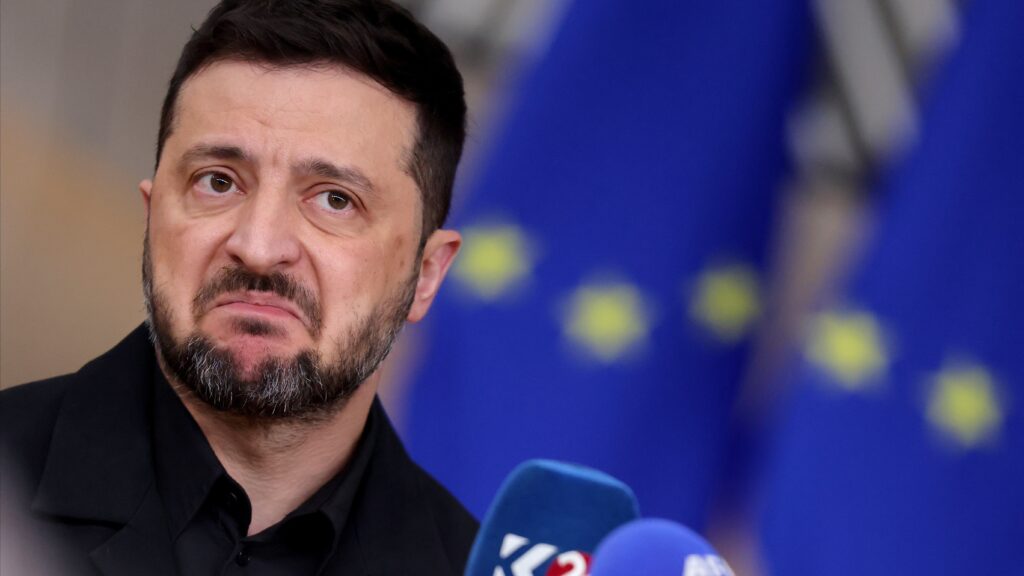The latest episode of the Danube Institute’s recently launched podcast, View from the Danube, has just been released. In what is arguably one of Hungary’s highest-quality conservative intellectual content, the episode, titled ‘About That New World You Ordered,’ featured Gladden Pappin, President of the Hungarian Institute of International Affairs; Liliana Śmiech, Director-General for International Affairs at the Ludovika University of Public Service; and Calum Nicholson, Director of Research at the Danube Institute. The discussion centred on the inauguration of US President Donald Trump on Monday and the global geopolitical implications of his presidency.
The podcast was hosted by none other than Rod Dreher, American conservative author and research fellow at the Danube Institute, who currently lives in ‘self-imposed exile’ in Budapest.
During the episode, the experts debated Trump’s aggressive rhetoric towards Canada, Mexico, and Greenland, interpreting it as indicative of a broader shift in American foreign policy. They explored the potential implications for Europe, particularly the economic and political challenges faced by nations like Germany and Poland. The conversation also delved into the influence of Elon Musk in European politics, highlighting his cultural power and the possibility of a rift between Musk and Trump. The panelists predicted significant shifts in American foreign policy under Trump’s second term, including bold moves such as potential acquisitions like Greenland and the rise of influential figures like JD Vance within the new administration.
Europe’s Trump-riddle
While the entire episode is too substantive to cover in this article, two segments of the podcast merit closer examination. The first deals with the European response to the new Trump administration—a topic frequently discussed in international media but one that has produced few concrete answers on how the EU and its member states should adapt to the shifting political realities across the Atlantic.
Liliana Śmiech highlighted that certain European governments have placed themselves in a precarious position by harshly criticizing Trump during his campaign. This is particularly true of her homeland, Poland, where the prime minister, Donald Tusk, accused the US president of dependence on Russian security services last year. ‘Certain governments in Europe will have very difficult problems getting to President Trump himself, getting to the people who are working with him, and actually trying to negotiate things that would be beneficial for them,’ Śmiech emphasized.
Mateusz Morawiecki on X (formerly Twitter): "Przed Państwem @donaldtusk w pełnej okazałości⤵️ pic.twitter.com/idlI5Ezi8H / X"
Przed Państwem @donaldtusk w pełnej okazałości⤵️ pic.twitter.com/idlI5Ezi8H
Gladden Pappin argued that, despite European concerns, the United States under Trump’s second presidency is not seeking to abandon its allies but rather to reconfigure its relationships with them. According to Pappin, this realignment presents an opportunity for the EU by encouraging member states to realize their actual national priorities, moving beyond their roles as mere vassals of the US or components of the broader European system.
Building on this, Calum Nicholson highlighted that Hungary has been a ‘first mover’ in recognizing and acting on this shift. ‘Hungary’s advantage is not that they’re the biggest country, but they were a first mover, and so therefore people sometimes look to Hungary as a precedent within Europe, or an example of how one might be able to approach things,’ he explained.
The Next Ronald Reagan?
Another particularly intriguing segment of the episode focused on predictions regarding JD Vance’s future. Vance, who grew up in challenging circumstances, raised by his grandmother in one of the poorest regions of the US, Appalachia—as detailed in his memoir, Hillbilly Elegy (highly recommended)—has risen to prominence in a remarkable career trajectory, now reaching the Oval Office. His story serves as a quintessential example of the American dream.
‘Trump’s presidency could pave the way for a future Vance presidency’
Both Rod Dreher and Gladden Pappin have personal connections with Vance and maintain good relationships with him. Dreher presented a fascinating theory, suggesting that Trump’s presidency could pave the way for a future Vance presidency. ‘I know his character. I believe in this man, and I believe he could be a Reagan of his generation,’ Dreher argued.
Pappin agreed, recalling how Democrats tried to demonize Vance during the campaign, portraying him as ‘weird’ and ‘struggling.’ ‘They had all this framing built up, trying as much as they could to shape public perception so that when you finally saw JD in action, you would view him through all of these liberal-coded lenses. And in the debate, he just broke right through it. And I think we’re just seeing the beginning,’ Pappin concluded.
Watch the full episode below:
About That New World You Ordered | View from the Danube #3
As the Trump 2 era dawns, the talk is all of a price on Greenland and the kowtowing of Canada. The Mar-a-lago world view that is emerging is one based on shoring up America's geographical power. We're back into the world of hemispheres - of the Monroe Doctrine, and implied spheres of influence.
Related articles:







